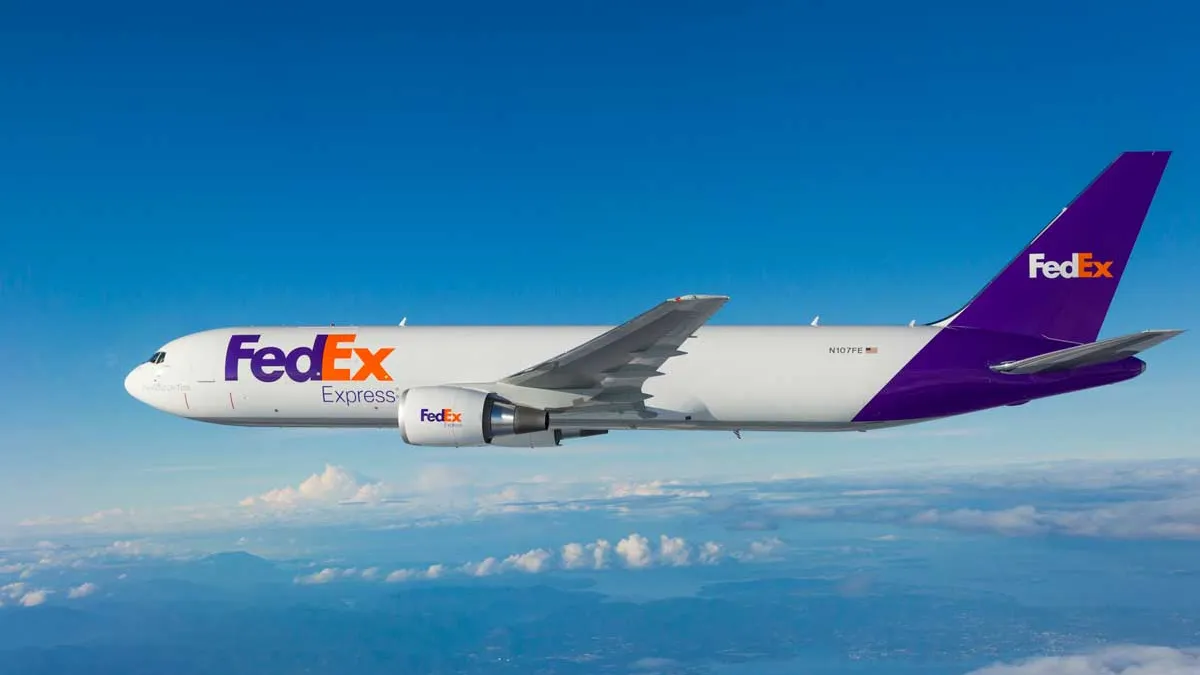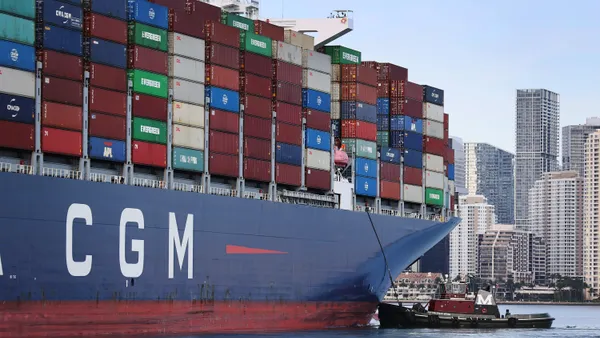Dive Brief:
- FedEx Express added 150 flights for the month of April to carry personal protective equipment (PPE), medical supplies and "other essential items" from Asia to the U.S., a FedEx spokesperson confirmed to Supply Chain Dive Monday. The carrier plans to use previously grounded aircraft, according to Bloomberg.
- The carrier already deploys seven to nine flights across the Pacific each day, and has increased domestic flights to shuttle packages for the U.S. Postal Service, according to Bloomberg.
- Although FedEx's statement did not link this move directly to Project Airbridge — for which it completed its first operation last week — the company said it is working with federal and state governments, "medical systems" and "direct customers" to keep the flow of critical supplies moving across the country. Project Airbridge, led by the Federal Emergency Management Agency (FEMA) and the White House Coronavirus Task Force, aims to expedite the shipment of critical supplies to U.S. hospitals in coordination with other countries and private-sector partners, including UPS.
Dive Insight:
Global airfreight capacity fell for the first time in three years in February, as the coronavirus hit manufacturing in China. Factory closures and bottlenecks at warehouses and airports in Asia caused traffic on the Asia-North America trade lanes to decline 2.4% year over year. FedEx had been cutting airfreight capacity since September. CEO Fred Smith said on an earnings call last month that the company planned to retire even more planes going forward.
But now the U.S. government is looking to circumvent limited capacity in the face of dwindling stocks of essential supplies. Instead of relying on ocean carriers, FEMA is looking to airfreight.
"FEMA covers the cost to fly supplies into the U.S. from overseas factories, reducing shipment time from weeks to days," the agency said.
FedEx Express transported more than 450,000 protective suits from Vietnam to Texas last Wednesday, in its first shipments under Project Airbridge. In the weeks to follow, FedEx said, more than 500,000 suits would be shipped each week. The carrier also said it planned to operate "several flights" last week carrying PPE from China to Illinois for Medline Industries.
UPS' contributed 25 flights to Project Airbridge, managed and brokered by the company itself. The charter flights had already started to arrive by last Tuesday, according to a company release, and the carrier plans to continue receiving flights for the next two weeks. The 25 flights are slated to carry more than 3 million pounds of masks, surgical gowns, gloves, medical swabs and thermometers.
The U.S. is also looking to its domestic supply chain for increased essential supplies. Some manufacturers have pivoted operations to produce medical and consumer supplies to help with pandemic relief efforts. LCR Hallcrest, which makes thermometers for dishwashers, is now making 1 million disposable forehead thermometers each week to be used in local hospitals.
But shortages are still evident across the country.
"The lack of a national strategy for coordination of the pandemic response is really affecting states' abilities to get the equipment they need. We've pushed the federal government to speed up production using all the levers of government. We've not seen as strong support as we'd like," Ruthanne Sudderth, SVP of public affairs and communications for Michigan Health and Hospital Association, told Supply Chain Dive at the end of March.













